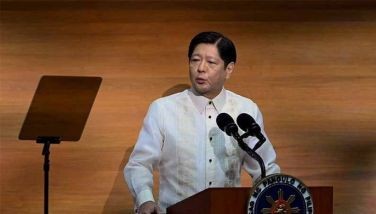The ideology of Xi Jinping

The past year has seen the tension between China and the United States becoming so intense that there was talk an accidental war could easily happen. The recent visit of US Secretary of State Blinken to China did not really accomplish any major steps towards easing this tension. As far as I could see, the only achievement was that the lines of communication were reopened.
The most ominous development that I understood was that China refused to allow any direct communication between the United States Armed Forces and the Chinese defense establishment. At a recent summit meeting, the top Chinese military leader refused to meet with the American Secretary of Defense.
In the South China Sea, there have been near collisions between American and Chinese naval vessels. Despite Chinese words of peace and gifts of fertilizer, the Chinese have refused to vacate Philippine territory and continue to harass Filipino fishermen.
One of the most interesting pronouncements I heard arising from the Blinken visit was that the United States and China were “different” and would try to co-exist in spite of these differences. I remember that past US presidents like Obama and Clinton said that if China joined international organizations like the World Trade Organization, it would eventually develop similar political and economic structures like the West. For a while, under Chinese leaders like Deng Xiaoping and other similar Chinese leaders, this possibility seemed imminent.
All these speculations and wistful thinking came to an abrupt end with the assumption to power of Xi Jinping. Whereas Marxist-Leninist thinking was fading during the Deng Xiaoping era, Xi Jinping is apparently is returning to this ideology. For example, like all Marxists-Leninists, Xi seems to base his thinking on “historical materialism,” which is an approach to history that focuses on the inevitability of progress through class struggle.
In some of his writing, Xi uses the ideology of historical materialism to position the Chinese Revolution in world history in the context in which China’s move to a more advanced stage of socialism necessarily accompanies the decline of the capitalist system.
This thinking is critical because the basic assumption is that a Marxist-Leninist China will eventually triumph over a decadent capitalist West.
Kevin Rudd is president of Asia Society in New York and former prime minister of Australia. He has recently written: “But within the Chinese system, Marxism-Leninism still serves as the ideological headwaters of a world view that places China on the right side of history and portrays the United States as struggling in the throes of inevitable capitalist decline, consumed by its own internal political contradictions and destined to fall by the wayside. That, in Xi’s view, will be the real end of history.”
In his own speeches, Xi Jinping has said that the Chinese Communist Party (CCP) has “justice on our side.” In one of his speeches, Xi told his audience “not to be evasive, bashful or mince our words” in dealing with Western countries. He also said that the goal of the West is “to vie with us for the battlefields of people’s hearts and for the masses, and in the end, to overthrow the leadership of the CCP and China’s socialist system.”
In other speeches, Xi has also contradicted Deng Xiaoping’s belief that China would need a gradual transition to socialism. Xi has promised that China could achieve both national greatness and greater economic quality in the near future by adherence to Marxist principles. If we take Xi’s words on the inevitability of the victory of the Marxist-Leninist ideology, this will serve as a reminder of the Maoist era when China sought to become the leader of the world.
The only thing that could hold Xi Jinping’s dream of the Marxist-Leninist triumph is the economy of China. There are indicators that the Chinese economic miracles have started to plateau and may even begin to decline. This is the same phenomenon that happened to Japan in the last century when after its decades of stunning economic growth came a period of economic stagnation. Other potential problems for China is a rapidly aging population, a shrinking work force, low productivity growth and high levels of debt by state and private financial institutions.
I have recently read several articles that talked about the “peak China” that is beginning to be seen.
I find it worrisome that Chinese military leaders would talk about armed conflicts as inevitable. I believe that Xi Jinping is driven both politically and ideologically. In dealing with him, I think it is important that people realize that he will not abandon this ideology because he seems to be a true believer.
* * *
The last Writefest for 2023 is on from June 26 to July 7. Registration is ongoing for hybrid sessions at Fully Booked BGC and via Zoom. Write with guest authors Manix Abrera and Mae Coyiuto and facilitators Sofi Bernedo and Roel SR Cruz. For registration: bit.ly/junewritefest2023
Email: [email protected]
- Latest
- Trending



























